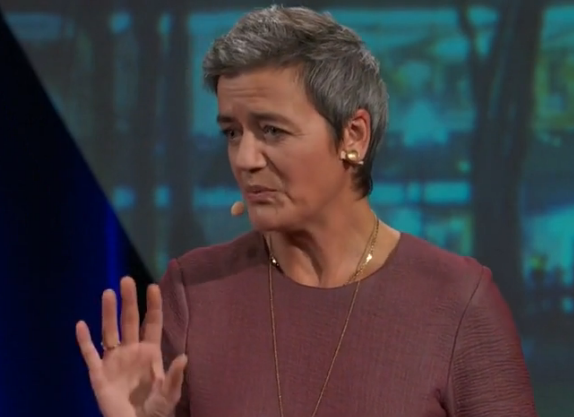But let's take a step back. Why do we need rules on competition at all?
但退一步來看。為何我們需要這些市場競爭的規范?
Why not just let businesses compete?
為何不直接讓企業自由競爭?
Isn't that also the best for us if they compete freely,
對我們來說企業自由競爭不是更好嗎,
since more competition drives more quality, lower prices, more innovation?
因為競爭越激烈,產品質量就越高,價格也會降低,創新性更高。
Well, mostly it is. But the problem is that sometimes, for businesses, competition can be inconvenient,
大多數情況下是這樣。但問題是,有時在企業間競爭會是個阻礙,
because competition means that the race is never over, the game is never won.
因為競爭永遠持續著,沒有結束的一天。
No matter how well you were doing in the past, there's always someone who are out there wanting to take your place.
不論你過去表現多好,總有某些人虎視耽耽想取代你。

So the temptation to avoid competition is powerful.
所以,避免競爭的誘惑十分強大。
It's rooted in motives as old as Adam and Eve:
這種深深植入人心的誘惑和亞當夏娃一樣古老:
in greed for yet more money, in fear of losing your position in the market and all the benefits it brings.
貪婪更多財富,害怕失去在市場的地位和它帶來的所有好處。
And when greed and fear are linked to power, you have a dangerous mix.
當貪婪和恐懼與權力扯上關系,就很危險了。
We see that in political life.
這在政治中很常見。
In part of the world, the mix of greed and fear means that those who get power become reluctant to give it back.
在世上某處,貪婪和恐懼的組合意味著表示擁有權力的人不愿將權力交給他人。
One of the many things I like and admire in our democracies are the norms that make our leaders hand over power when voters tell them to.
在我們的民主制度中,我喜歡并欽佩的諸多優點之一,就是規定選民可決定領導人是否該交出權力。
And competition rules can do a similar thing in the market, making sure that greed and fear doesn't overcome fairness.
在市場中,競爭規范有著相似的作用,它確保貪婪和恐懼不會威脅到公平性。
Because those rules mean that companies cannot misuse their power to undermine competition.
因為這些規范意味著公司不可濫用權力破壞競爭。











